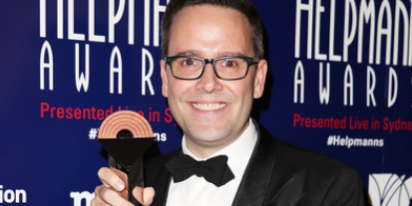Executive Director Jarrod Carland puts the company into administration, leaving artists little hope of payment.
The directors of the troubled Brisbane Baroque festival have put the company into voluntary administration as of January 16 due to “concerns over the ability of the company to meet its obligations,” according to a statement issued last night. The announcement comes less than a month after executive director Jarrod Carland broke six months of silence to tell The Australian that he was working with the Federal Arts Ministry on a grant “that would see about 90 performers and other creditors paid at least some of the $500,000 they were owed”, and that he was aiming to reprise the event in the second half of this year.
The two-page statement put out by Brisbane Baroque outlined a series of debts incurred over two years and blamed Federal Arts Minister Mitch Fifield and government funding programmes for failing to support the critically acclaimed festival. It also details how Carland was “admitted by a medical professional to a psychiatric hospital for many months” with what he describes as a lifethreatening illness.
Carland blames the timing of the Queensland state election for forcing an announcement that the Hobart Baroque festival was moving to Brisbane only nine weeks before it was due to open – which he describes as “an impossible timeframe”. Subsequently the 2015 Festival lost “in excess of $400,000” but was bailed out temporarily by a series of loans from patrons and friends, including $250,000 loaned by Wotif founder and Festival supporter Graeme Wood.
Despite the substantial debt, Carland and his partner Shannon Pigram decided to go ahead with the second Brisbane Baroque Festival in April 2016, budgeting for it in the hope they could “gradually pay back the individuals who helped us the previous year and enjoy profitable future.” Poor local sales and the “crippling” costs of hiring Brisbane’s City Hall are blamed for the second Festival losing a further $400,000. “It is unfortunate that the Brisbane City Council has allowed such an iconic city landmark to be managed in such a way that it makes live performance in this venue prohibitive,” says Carland, whose illness in June of last year has previously been cited as the reason why creditors were ignored for nine months.
“I am aware there are certain parties that feel my breakdown is a convenient excuse to avoid dealing with this situation, which is unfortunate and hurtful but something I have no control over,” Carland writes, going on to stress that the Festival has left him “in considerable debt” and that “any suggestion that my partner and I have been using funds from the festival for our own personal use is outrageous and untrue.”
Carland saves his chief criticisms, however, for the Federal government, which he believes should have retrospectively supported a Festival that by that stage owed around $800,000 in fees and loans. “Every effort has been made to raise money to cover the shortfall for the 2016 event, including approaches made to Senator Mitch Fifield and the Ministry for the Arts to state the case for Federal government support for this critically acclaimed festival,” says Carland. “Unfortunately, our request has fallen on deaf ears.”
He also blames Tourism and Events Queensland (TEQ) who withheld their final payment after they heard that the Festival was unable to pay its artists, though Limelight understands that amount to be only somewhere in the region of $30,000 – $35,000. “If Brisbane Baroque was able to provide TEQ with sufficient certainty that the post-event payment of TEQ’s investment in 2016 will be used to pay Brisbane Baroque’s creditors, then TEQ is prepared to contribute an ammont equal to the post-event payment to the pool of funds available for that purpose,” Group Exectutive – Corporate Affairs, Megan Saunders told Limelight in December 2016, though TEQ stressed that this payment will not “substantially” alleviate the financial situation.
Brisbane Baroque also applied for future funding through the Catalyst fund, but were turned down while, Carland complains, they saw “large amounts of money going to arts institutions that are already fortunate enough to receive considerable funding from many different areas. Unfair in so many ways”.
Meanwhile, Mayfields Business Advisors have been named as the liquidator for Brisbane Baroque Pty Ltd and Carland says they will have full and unfettered access to all company accounts. “I have never received any financial benefit from the Hobart or Brisbane Baroque festivals,” he maintains. However, it now seems highly unlikely that any of the Australian and international artists still owed money for performances in the 2016 Festival – including the Queensland Symphony Orchestra, the cast of the Helpmann Award-winning Agrippina and Orchestra of the Antipodes – will see any of their agreements honoured.
liquidation-owing-800000/”>Source link


